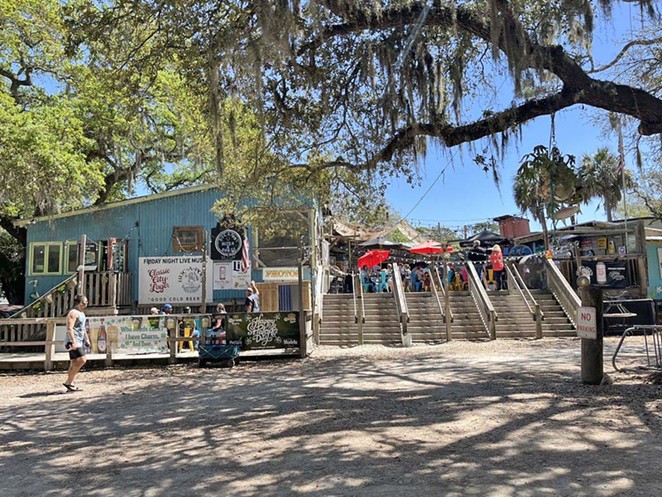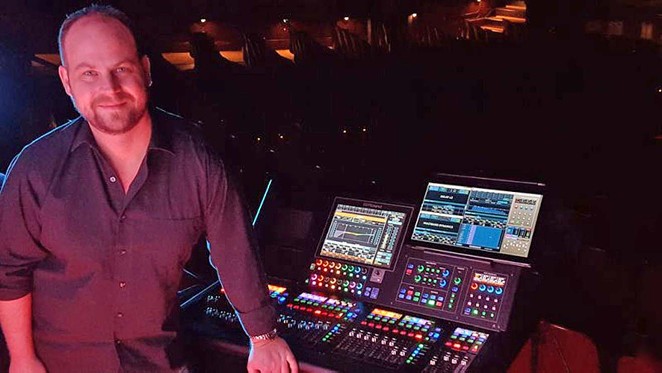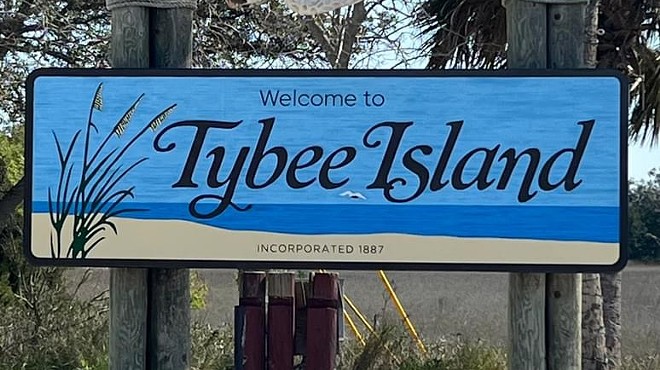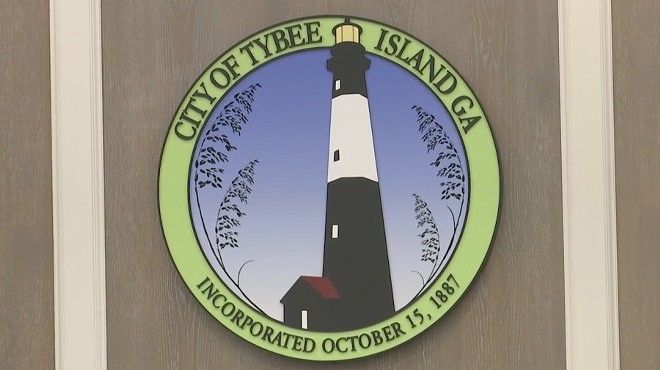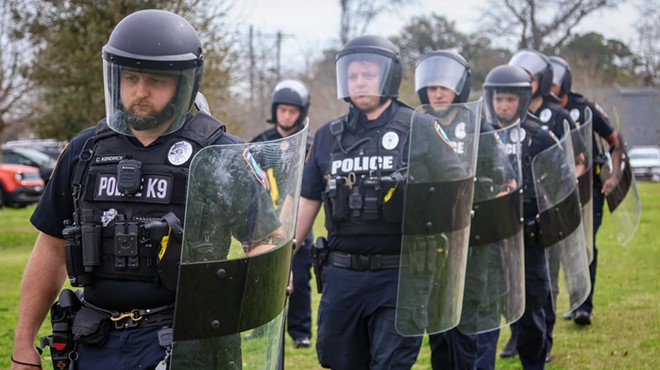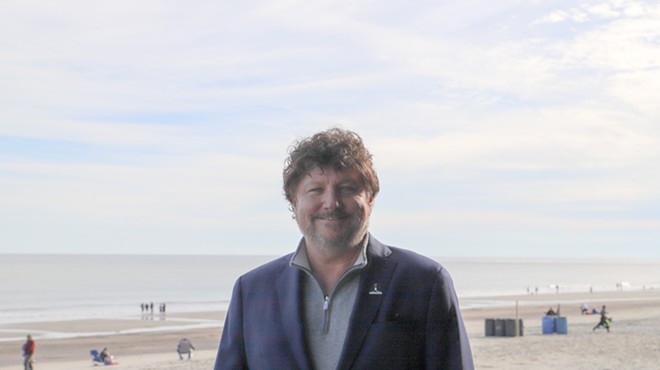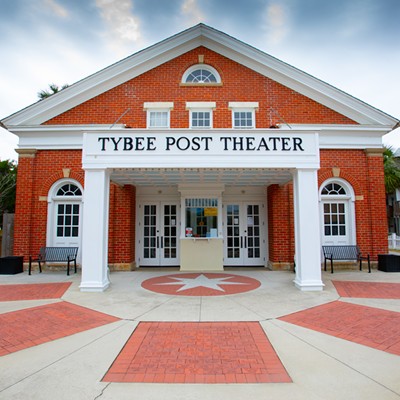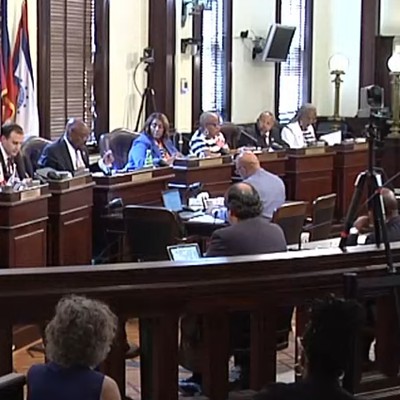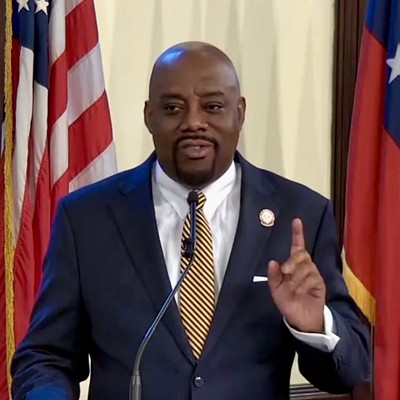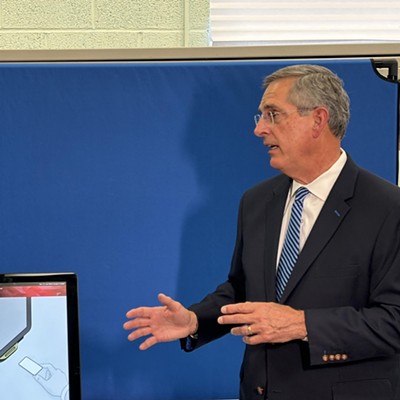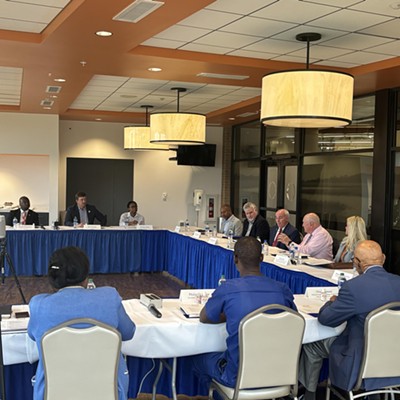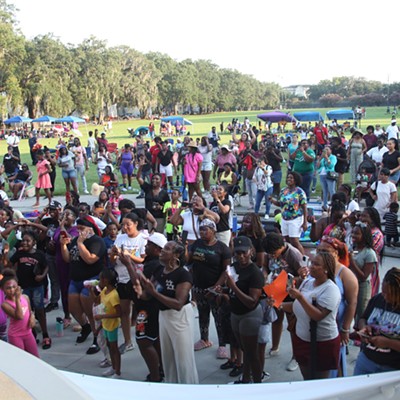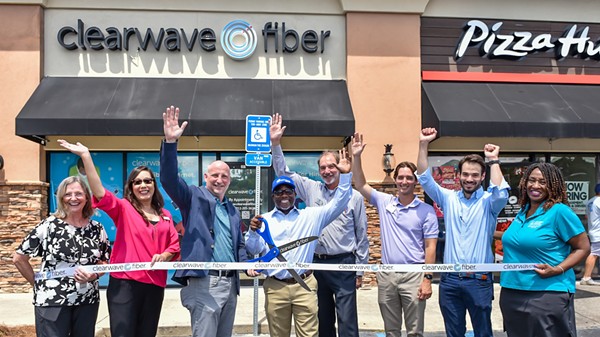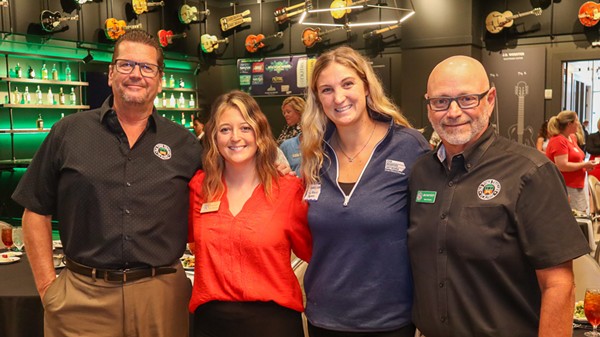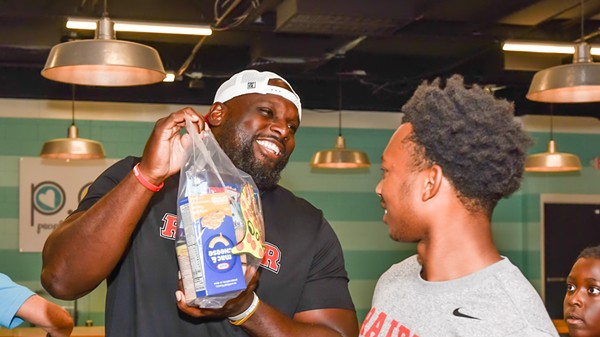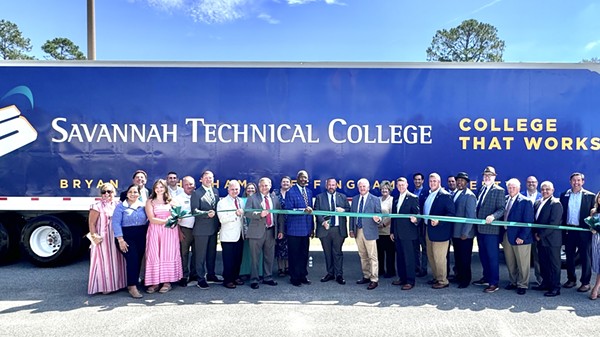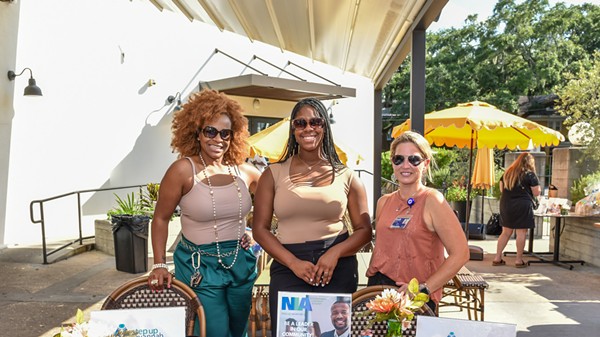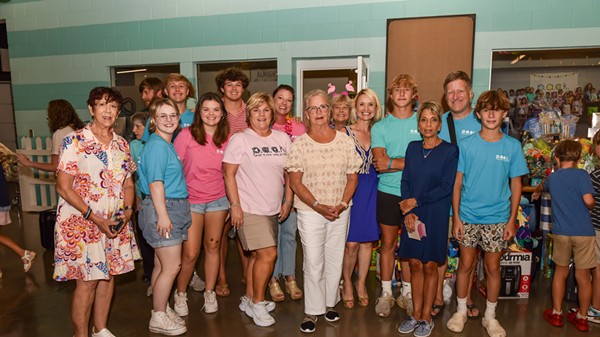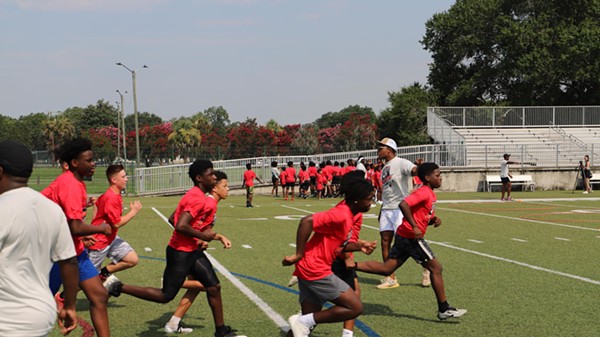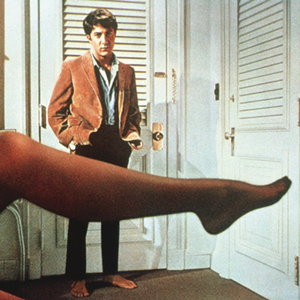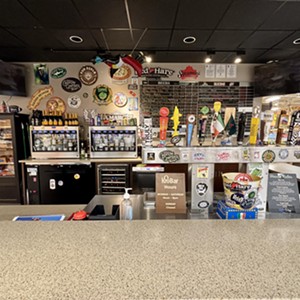One of Tybee Island’s most popular businesses is at the center of a debate with city officials this month as the owner is pushing back against an adopted regulation drafted by City Manager Shawn Gillen limiting the times for which bars and restaurants can host live music.
On June 17, Huc-A-Poos Bites & Booze (or “Huc-A-Poos”) was one of 11 Tybee establishments to receive an email from Gillen’s office laying out changes to the island’s noise ordinance regulations for bars and restaurants with entertainment licenses. Prior to the city manager’s email, bars with entertainment licenses were allowed to have live acts play music until closing time, provided the volume stays below a specified level.
The email states, in part, that “All businesses holding an entertainment license that are immediately adjacent to R-1, R-1B and R-2 zones must cease any music or entertainment as of 11 p.m. on weekdays and 12 a.m. on weekends. Music or entertainment includes both amplified and non amplified live performances (with or without instruments), recordings and live streaming services/radio. Any business which violates this regulation will be subject to having their business license revoked.”
Tybee’s Code of Ordinances limits noise levels for residential properties to 60 A-weighted decibels (dBA) and commercial properties to 75dBA. For reference, Yale University’s decibel comparison chart estimates sound emitted at 75dBA to be equivalent to that of a standard household vacuum cleaner. Since Huc-A-Poos (1213 Highway 80) is adjacent to a residential lot, it has to remain under 65dBA.
Eric Thomas, 48, is the owner of Huc-A-Poos, and has been for 22 years. In a July 21 phone call with Connect Savannah, Thomas expressed his concerns about the regulation. Through open records requests with Tybee, Thomas found that from May 2021 through May 2022, one complaint was filed (on September 4, 2021) on Huc-A-Poos.
“I feel like this is a bit of a personal attack on Huc-A-Poos,” said Thomas, who met with Gillen, Tybee’s police chief and assistant police chief at the Public Safety building on July 21. “We were told that there was ‘a problem’ with noise levels and live music, but unless there is some secretive portal of complaints that I don’t know about, one complaint over an entire year does not mean there is a problem.
“So, I question if there is even a problem at all.”
According to Thomas, in 22 years of business, Huc-A-Poos has never received a penalty of any kind from Tybee Island for violating a noise ordinance policy.
Gillen works for the Tybee Island City Council (six members) and is appointed, not elected, to his position. He spoke with Connect over the phone on July 20 about why and how the regulation came to be.
“(City Council) will sometimes get calls from folks who don’t want to call the police about the noise coming from (the Huc-A-Poos) area,” Gillen said. “We drafted a rule, based on the city attorney telling me that the city manager has the authority to make some rule adjustments, including time of live music. And we sent that letter out to 11 businesses.”
Gillen said that Thomas was the only objector to the regulation, and once his objection was raised, Tybee decided to “pump the brakes” on enforcing the rule “until we’ve all talked this through.” Thomas says his was the only objection because the other 10 businesses on the island with entertainment licenses would not be impacted by the new time constraints.
Huc-A-Poos, which has live music on Friday and Saturday nights, is currently the only bar on the island with bands regularly playing beyond 11 p.m.
“Nothing changes with those other venues, because they don’t have live music past like 9:30, and at the latest, maybe 10 p.m.” said Thomas. “We don’t even start (live music) until 9:45 and they wrap-up usually around 1:30.”
According to official Tybee Island documents tracking entertainment licenses near residential areas, the following businesses would have received the email from Gillen on June 17: Huc-A-Poos, Cockspur Grill, Sea Wolf, North Beach Grill, Tybee Island Historical Society, American Legion, Tybee Post Theatre, Sting Ray’s, AJ’s Dockside, Chamarco’s South and Pier 16.
Many Huc-A-Poos loyalists have voiced concerns about the issue.
A Facebook group called “Huc-A-Poo Aficionado Club” has over 5K members and the group has been active in opposing Tybee’s plans for time constraints.
“What should Tybee BAN next?” is one of the more popular (and satirical) questions in the forum and it has spawned answers like “Kittens and bunnies” and “salt water, because it’s so corrosive and full of deadly things.” The hashtag of choice seems to be “#TyBan,” as it continues to gain traction on Instagram and Facebook.
It should be noted that Huc-A-Poos was voted the “Best Tybee Island Bar” by Connect Savannah readers in 2022. Poo’s has also won that award many times in previous years which is further evidence of its popularity among locals and tourists alike.
Although Huc-A-Poos isn’t being forced to change anything about its schedule or live music lineup in the immediate future, Thomas estimates that roughly 37% of his revenue from Friday and Saturday nights would be lost if Huc-A-Poos was eventually forced to stop its live music at midnight. Gillen says that won’t happen. Nothing will change, at least for right now.
“We aren’t out trying to destroy any businesses or anything like that,” Gillen said. “What we are trying to do is get more of a balance in our residential areas.
“We have to try and find a solution here. If this (new rule) is not going to work, then what will work and what can we do differently that would work for everybody? That’s a tough thing to find. As soon as (Eric) raised his objections, we hit pause and said, ‘Okay, we won’t implement anything until we get on the same page.’ So, it isn’t something that we were trying to rush.”
During their July 21 meeting, Thomas says he and Gillen took “major strides” toward a solution.
“I think everybody wants to be good neighbors here, and I’m optimistic that we can figure this thing out,” Gillen said one day prior to meeting with Thomas. “It’ll require us working together and compromising, and that’s what we are planning to do.”
Thomas says he has made changes several times in the past in order to appease his neighbors in regards to live music. He cited three of those changes when he spoke with Connect.
He estimates that “around seven or eight years ago” Huc-A-Poos erected a sound barrier wall to prevent sound from traveling east. Prior to that, roughly 10 years ago he guesses, the bands were moved from the outside deck indoors with their backs to a brick wall in order to prevent sound from traveling north. Finally, around three years ago, live music at Huc-A-Poos went from being every Thursday, Friday, Saturday and Sunday night, to only Friday and Saturday nights.
“There is a difference,” Thomas said, “between compromises and concessions.”
Thomas said that only one of the six City Council members (Brian West) had reached out to him about the issue as of July 23. West spoke with Connect about the issue and said that Gillen works for the council and that the council “has never had a discussion about this in-session.”
Still, Thomas believes that “there was definitely communication” between the council and Gillen prior to Gillen’s June 17th email.
“The council has not made any changes to the sound ordinance in place,” said West. “If a citizen wanted to, he or she could submit a proposal to the council. From there, (the council) would have a conversation in-session before advertising a public comment period and a first reading. Then we as a council would have a second reading before voting.”
Any tied votes from the six-man council would be broken by the mayor, Shirley Sessions.
For Thomas, there is an issue extending far beyond this regulation.
“Look I don’t blame Shawn for any of this, and I think he deserves a lot of credit for meeting with me and for taking a step back and saying ‘hey, maybe we made a mistake here’ or maybe some things were done poorly,” Thomas said. “The biggest argument I have with all of this is the fact that one man can make a rule, adopt a rule for the city, and then implement it on his own is a much larger issue than a noise ordinance.”
Since 1983, Sec. 34-33 in the Tybee Island Code of Ordinances has given the City Manager (formerly known as “administrator”) authority to make changes, so long as it doesn’t contradict current code. It states: “The administrator shall have the power and authority to make and publish reasonable rules and regulations not inconsistent with this article or other laws of the city and the state, or the Constitution of this state or of the United States.”
That irks Thomas and he is confident it would bother a lot of Tybee residents if they knew about Sec. 34-33.
“We have procedures in place that are supposed to protect us from this kind of thing and the fact that one man, working on authority from the council, can do this is ridiculous,” said Thomas. “(Gillen) is just a manager, it isn’t his job to care about the citizens, it is his job to work for the council and it’s the council’s job to care about and protect its citizens. Council should be taking more concern about this.”
The support from Huc-A-Poos customers and supporters has come from far and wide, most notably on social media.
Thomas believes that public support may be the primary reason for the pumping of proverbial brakes.
“That’s what has gotten us this far. I’m so grateful for all of the support we have received and I don’t know that we would be where we are now without it,” Thomas said.
“On Tybee, we have only one export and that is fun. That’s all that people take with them when they leave this island. So I do want to thank the people who have reached out to the council about this, I think it has actually made a huge difference in their decision making and for that, we couldn’t be more grateful.”
Audio expert weighs in on Tybee Island, Huc-a-Poos noise dispute
As Huc-A-Poos and Tybee Island officials continue to try and resolve disagreements concerning noise ordinances and rules about live music near residential areas, Connect Savannah spoke with a local expert in the audio field about what adjustments can be made by both parties in order to reach a solution.
For those unfamiliar with the popular Tybee bar and restaurant located at 1213 US Highway 80, Huc-A-Poos has been a staple on the island for 22 years under owner Eric Thomas.
Tybee’s City Manager Shawn Gillen and Thomas don’t exactly see eye-to-eye on a new regulation restricting live music from being played at Tybee businesses with entertainment licenses past 11 p.m. on weekdays and midnight on the weekends (Friday and Saturday).
Gillen sent an email to 11 Tybee businesses (including Huc-A-Poos) on June 17 outlining the new rule. It was Gillen, not the Tybee Island City Council as a whole, who implemented the change and that is a big concern for Thomas.
But beyond that segment of the issue, there is another issue that is being raised by people with no real loyalty to either “side” of the debate. It centers around the wording and enforcement practicality of the noise ordinance itself.
Tybee’s Code of Ordinances allows (assuming the June 17th rule is not enforced as Gillen suggests) Huc-A-Poos and places like it to host live musical acts with no real time constraints.
Instead, the constraints are based on the level of noise/sound being emitted.
The limit for commercial properties like Huc-A-Poos is 65 dBA (A-weighted decibels) and Thomas has said his establishment has never received a penalty or fine from Tybee as a result of breaking that barrier.
Huc-A-Poos is near residential properties, but some of them are designated as rental properties and some are long term or primary residential properties.
Because of this, Michael Gaster and others suggest that Tybee officials narrow-in on the location of noise complaint(s) and work to block sound from moving in that direction specifically.
“The city has a lot of homework to do when it comes to their noise ordinance, and I’ve told former council members that in the past,” Gaster said in a July 24 phone call with Connect Savannah. “The way the ordinance is written, limiting the weighted decibels, it’s not a great approach if they want to solve this problem.”
Gaster is the primary engineer and systems designer for Michael Gaster + Associates, a technical systems company in Savannah providing for-hire services at live events and built-systems for places of public gathering.
He has over 30 years of experience with concert and theatrical audio as well as designing and building multipurpose audio-visual systems for entertainment facilities.
Thomas regularly monitors the sound levels of his live music by walking to the back edge of the Huc-A-Poos parking lot and taking measurements there.
“If the readings are between 55-60 (dBA) from that distance,” Thomas argues, “Then surely the sound levels would begin to decrease as you move further away.”
Gaster agrees. But it’s not quite that simple, and the complexity of understanding the properties of sound and how it travels is precisely the reason why he believes bar owners, city council members, code enforcement officers and police officers shouldn’t be trying to strictly limit dBA levels.
“They just don’t have much to go off of when trying to enforce this,” he said. “An empty parking lot at Huc-A-Poos could still read sound levels up to 70-75dbA because of car horn, or because of any number of natural sounds.”
For police, who are usually the ones responsible for responding to official noise complaints after code enforcement officers are off-the-clock, the task of measuring volume levels is a thing of the past.
“We aren’t out there with decibel readers taking measurements anymore,” said an unidentified Tybee Police officer. “That has kind of gone away. It isn’t a high priority, obviously, and most of (the businesses) are pretty good about monitoring themselves.”
When asked how often he and other police are responding to noise complaints, the officer said it isn’t the bars which usually garner the complaints.
“We don’t get a lot of (noise complaints) from the (bars) because the ones on the south end aren’t as remote as Huc-A-Poos and people staying in those residential properties nearby are going to understand that a bar may have noise coming out of it. I’d guess it happens less than monthly, maybe a few times per year.
“It’s the short-term rental properties where we get a ton of noise complaints. That’s a pretty common thing actually.”
So as far as solutions go, there aren’t any easy ones it seems.
Still, Gaster says “reasonable changes” can be made to the ordinance to appease both sides, but beyond that, Huc-A-Poos might have to be willing to spend big money to make construction changes at its place in order to limit sound.
“Short of an entire reconstruction (at Huc-A-Poos) or adjustments to the ordinance itself, we would be talking about somewhere in the neighborhood of $8,000-$10,000 to install the necessary changes at the source of the sound,” he said. “The best approach would be to identify the direction of the complaints, then focus all the resources available to preventing sound from traveling from the band toward that direction.


